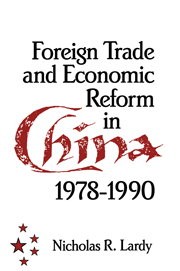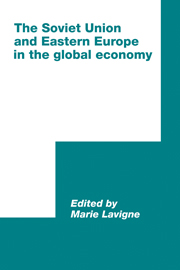Foreign Trade Prices in the Council for Mutual Economic Assistance
Six European socialist states - Bulgaria, Czechoslovakia, Hungary, Poland, Rumania and the Soviet Union - announced the establishment of CMEA in January, 1949. Each CMEA country has the centrally planned economy of the socialist state, with the check on the free movement of prices that a deliberate planning policy provides. This book discusses what determines the movement of resources in the CMEA economy and what role the price system plays. Professor Hewitt concludes that the price system resulted in price changes causing a significant deterioration in Soviet-East European terms of trade during the 1960s. He finds little evidence that prices have influenced actual trade flows, and believes economic reforms in some East European countries could eventually lead to a much greater influence of CMEA foreign trade prices. This book discusses the major proposals to reform the price system and shows how debates on that matter have naturally led into debates on reforming all intra-CMEA economic institutions.
Product details
March 2011Paperback
9780521153058
212 pages
216 × 140 × 12 mm
0.28kg
Available
Table of Contents
- 1. The CMEA economy
- 2. The literature on CMEA foreign trade price determination
- 3. An empirical analysis of CMEA foreign trade prices
- 4. The influence of CMEA foreign trade prices on intra-CMEA trade flows
- 5. Proposals to reform the CMEA price system
- 6. The future of foreign trade prices in the CMEA economy.





